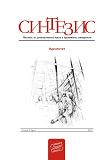Идентитетски вредносни консензус: Краљевина СХС као „сељачка држава“
Value Consensus on Identity: Kingdom of the Serbs, Croats and Slovenes as a “Peasant State”
Author(s): Srđan MiloševićSubject(s): History
Published by: Центар за хуманистичке науке »Синтезис«
Keywords: Kingdom of SCS; peasantry; peasantism; peasant state; antiurbanism; ideology
Summary/Abstract: In the interwar Kingdom of the Serbs, Croats and Slovenes (Yugoslavia) peasantry constituted c. 80% of the whole population. That is why specific ideology of peasantism was elaborated as the dominant ideological discourse which argued for the organization of the new state on that peasant social basis – i. e. for the creation of the „peasant state“. The ideology itself promoted peasantry as the leading stratum of the society in the view of moral values, economic importance, politial force etc. That is why the main task was to organize the state in accordance to the needs and interests of the peasantry. Which is more, the ideology attempted to work out the model of „our peasant“, one of the main elements of the „national oneness“ of Serbs, Croats and Slovenes. Almost all political parties as well as leading intelectuals of the time accepted and promoted this ideology, as the means for achieving far-reaching national unification. The ideology included promotion of the peasants’ democratic right to take active and leading part in the political life of the state. The glorification of the peasantry was followed by strong antiurbanism and anticapitalism, in some extents. At the end of the day, interwar peasantism failed in the two most important tasks: it did not influence the substancial improvement of the peasant life and it did not contribute to the national unification of the “Yugoslaves”.
Journal: Синтезис - часопис за хуманистичке науке и друштвену стварност
- Issue Year: I/2009
- Issue No: 1
- Page Range: 1-14
- Page Count: 14
- Language: Serbian

